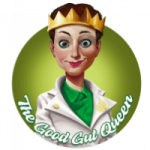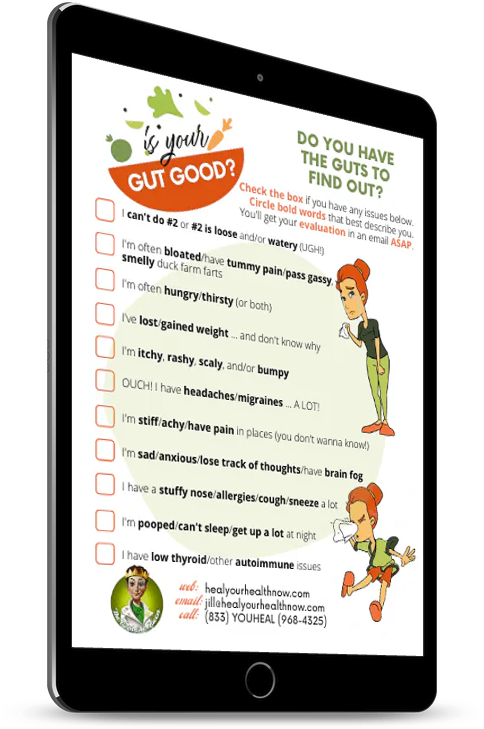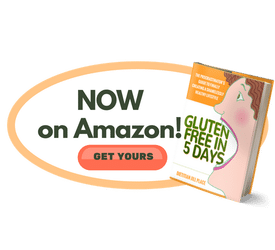 By Dietitian Jill Place
By Dietitian Jill Place
After years and years of work, I’m closer to discovering why people abuse food than I’ve ever been before. It can be as simple … or as complicated … as the scripting we get as children. And how we interpret it as adults … many times to our detriment.
One client of mine turned a specific message about going up into an attic from a well-meaning grandmother … “you’ll never go that high”… into a mantra that pervaded her entire life. Another transformed early warnings about being good or bad into similar obsessive thoughts about specific foods.
Unless we dig these beliefs out and gather some understanding about them, we may never be able to change our behaviors for the better.
That’s why I always recommend Debbie Ford’s book, The Secret of the Shadow, to all my clients. It’s about identifying your life story so you can transcend the limits of your personal dramas.
If you do the many exercises in the book, you will truly transform your life, as Ford’s take on rediscovering your true self is, in my opinion, absolutely correct. As Ford puts it metaphorically in culinary terms …
I truly believed I would feel better once I got rid of parts of my recipe I didn’t like. But struggling unsuccessfully against the unwanted parts of me led me to discover that I didn’t want to get rid of anything.
Instead, I needed to integrate and embrace everything …. If I integrated all my ingredients, mixed them up, and appreciated the unique contribution they made, I would finally be able to recognize that I had all the makings of the perfect me.
Owning Your Unique Story Can Change Your Life … and Your Eating
This was kind of revolutionary stuff among the disordered eating community, many of whom advocated pitching the part of you that overate/purged/starved/etc. My experience with this … try and do it and your overeating self will just eat 20 more cookies.
The trick instead is to make friends with it, convince it that you love it, and re-parent it so it can finally grow up and be a responsible, viable adult. Because, without it, you’re not the perfect me that Ford advocates.
She puts it this way … “Imagine flipping through your favorite cookbook and seeing several recipes for passionate, fulfilled, abundant, extraordinary human beings. Intrigued, you quickly turn to the indicated pages to learn what could make up such masterpieces, and on the first page you see:
Mix together fourteen traumas, four heartbreaks, a mother who loved too much, a father who was emotionally unavailable, and one cheating husband. Blend in the opportunity to be a single mother with two children.
Add four extra doses of selfishness, a shadow belief that says, ‘I’m not good enough,’ and an ego that screams, ‘I’m going to prove to everyone that I am good enough.’ And voila! You have forty-two-year-old Lynda, a perfectly satisfied chief financial officer of a $17 million company!
Yes … perhaps she’s satisfied on many levels … but I’d bet six ways to Sunday that she’s also painfully overweight and comes home at night, puts her feet up, and downs half a bottle of wine and/or a whole pint of Haagen Dasz extra-everything.
The Four Year-Old That Eats
I say that because among my clients are doctors, therapists, multi-millionaires, and restaurant owners. All of them are extraordinarily successful in every other way but with food.
There they behave like four- or five-year-olds cavorting in Willy Wonka’s chocolate room. And since no one told them that that four-year-old needs to be integrated into the other parts of her … that it needs to be loved, re-parented, and ultimately accepted … most live embarrassed closeted lives of quiet desperation.
So here’s where I’d start that integration. And here’s what I advocate.
Get yourself a journal and a favorite pen. I just ordered one from Amazon … an embossed green faux-leather beauty with lanyard-and-charm closure.
It had to have lines because I have a hard time with totally blank pages. I also use these colored disposable fountain pens to write with … you CAN do this on a computer or record your thoughts but the act of putting pen to paper is very powerful so I’d start there no matter what pen or paper you use.
The Journaling Process
Find a comfortable place to write. Then take a few deep breaths and reach into yourself to find a relaxed, deeper state of consciousness. You can also light a candle, turn on some soothing music, or the like.
Then scribble in wild-mind-writing style. Don’t use punctuation or capitalization … just get your thoughts down as quickly as you can.
I bought a great bench for my front porch and am now spending a little time there every morning putting that pen to paper and answering very pointed questions that can reveal my story. Here’s a few you might want to start with …
1. Thinking back, write down all the experiences that you think have had a profound impact upon your life … the joys, defeats, mistakes, triumphs, disappointments, and heartbreaks … write ‘em all down.
2. Make a list of the parts of your life that you’ve had difficulty with accepting … in other words, the parts that you wish would leave and never come back. Like your overeating or eating disorder self … parts you just want to push out of the car and leave by the roadside? What are they?
3. Do any themes, ideas, or messages keep coming up for you when you do this process … ideas like “I’m good (or bad)”, “I’m not good enough”, “I’m fat and ugly”, “I’m a doormat”, “I feel abandoned”, “I can’t trust anyone” … and the like? Write those down and circle the ones you think you’re living your life by.
4. Spend some time every day exploring these themes.
Pick a time to do this. I schedule it in my day planner … otherwise I won’t do it. Spend at least 15 minutes a day scribbling stuff down.
For me … I spend a lot of time scribbling down business ideas. And then … then … I have to write down … “How do you feel?”.
I feel like Spock in the movie, Star Trek IV, when the computer asks, “How do you feel?” Yes … I’m a hard-core trekkie and even got a chance to talk with Gene Roddenberry, its creator, for a few hours (long story) once. But I digress …
Asking “How do you feel, Jill?” (using third person has been researched to create enough psychological distance to think more calmly and objectively) helps me to shift gears and really get to what’s going on with me. So I’d suggest … to start … that you pick one of your deep life-themes, ask yourself how you feel, and go for it!


Leave a Reply